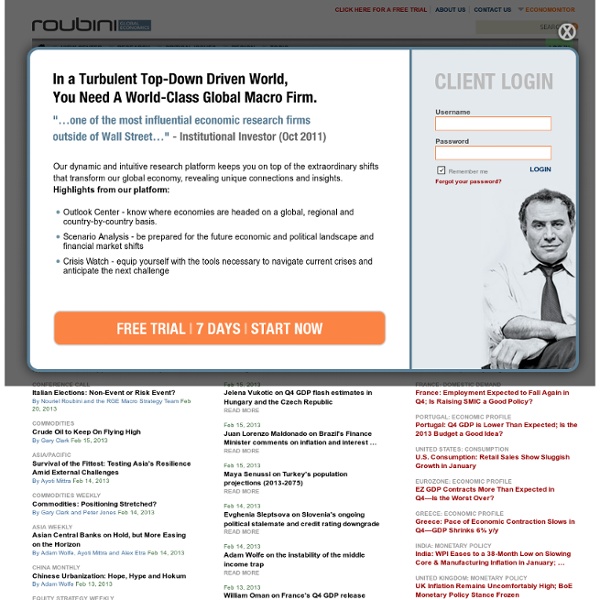



People-Centered Economic Development : History People-Centered Economic Development, P-CED, derived from a paper for the steering committee to reelect the [US] President in 1996. Following is a synopsis of that paper. At first glance, it might seem redundant to emphasize people as the central focus of economics. Joseph Stiglitz Joseph Eugene Stiglitz, ForMemRS, FBA (born February 9, 1943) is an American economist and a professor at Columbia University. He is a recipient of the Nobel Memorial Prize in Economic Sciences (2001) and the John Bates Clark Medal (1979). He is a former senior vice president and chief economist of the World Bank, and is a former member, and Chairman of the Council of Economic Advisers.[2][3] He is known for his critical view of the management of globalization, free-market economists (whom he calls "free market fundamentalists"), and some international institutions like the International Monetary Fund and the World Bank. Life and career[edit] Stiglitz was born in Gary, Indiana, to Jewish parents, Charlotte (née Fishman) and Nathaniel D. Stiglitz.[13] From 1960 to 1963, he studied at Amherst College, where he was a highly active member of the debate team and president of the student government.
Why Are So Many College Graduates Driving Taxis? It’s a parent’s nightmare: shelling out big money for college, then seeing the graduate unable to land a job that requires high-level skills. This situation may be growing more common, unfortunately, because the demand for cognitive skills associated with higher education, after rising sharply until 2000, has since been in decline. So concludes new research by economists Paul Beaudry and David Green of the University of British Columbia and Benjamin Sand of York University in Toronto. This reversal in demand has caused high-skilled workers to accept lower-level jobs, pushing lower-skilled people even further down the occupational ladder or out of work altogether. If the researchers are right (which is not yet clear), the consequences are huge and troubling -- and not just for college grads and their parents. Let’s start with some basic facts.
New School Economic Review » Blog with us We invite you to contribute posts to our blog! In addition to our writing, we are looking for posts on issues of interest to economists and social scientists in academia, the policy world, and in general. Our journal, The New School Economic Review, tends to focus on issues in macroeconomics, political economy, trade, development, and philosophy of economics. Warren Buffett Buffett is called the "Wizard of Omaha" or "Oracle of Omaha",[8] or the "Sage of Omaha"[9] and is noted for his adherence to value investing and for his personal frugality despite his immense wealth.[10] Buffett is a notable philanthropist, having pledged to give away 99 percent[11] of his fortune to philanthropic causes, primarily via the Gates Foundation. On April 11, 2012, he was diagnosed with prostate cancer,[12] for which he successfully completed treatment in September 2012.[13] Early life Buffett's interest in the stock market and investing dated to schoolboy days he spent in the customers' lounge of a regional stock brokerage near his father's own brokerage office.
Plosser Opposes the 1933-37 Expansion - Tim Duy's Fed Watch Philadelphia Federal Reserve President Charles Plosser spoke yesterday, reiterating his opposition to QE and his expectation that it will have no impact on growth. I don't think any of that should have been a surprise. What caught my attention was this: Once the recovery takes off, long rates will begin to rise and banks will begin lending the large volume of excess reserves sitting in their accounts at the Fed.
About Global Perspectives on Finance, Development and Environment The world is experiencing three simultaneous crises in finance, development, and the environment. A number of economists are questioning the mainstream narratives and analyses of these crises. Some of us have joined to create the Triple Crisis Blog to contribute to a more open and global dialogue around these three crises. As co-founders Jayati Ghosh and Kevin P. Gallagher wrote in their post launching the Triple Crisis Blog, “Crises are not new to the world economy, nor to developing countries.
Paul Volcker Paul Adolph Volcker, Jr.[1] (born September 5, 1927) is an American economist. He was Chairman of the Federal Reserve under Presidents Jimmy Carter and Ronald Reagan from August 1979 to August 1987. He is widely credited with ending the high levels of inflation seen in the United States during the 1970s and early 1980s. He was the chairman of the Economic Recovery Advisory Board under President Barack Obama from February 2009[2] until January 2011.[3] The Expendables: How the Temps Who Power Corporate Giants Are Getting Crushed (Image: Temp work via Shutterstock)Truthout doesn’t take corporate funding - that’s why we’re able to confront the forces of greed and regression. Support us in this mission: make a tax-deductible donation today by clicking here. It’s 4:18 a.m. and the strip mall is deserted. But tucked in back, next to a closed-down video store, an employment agency is already filling up.
The shadowy world of IPA finances - The Drum Opinion Find More Stories The shadowy world of IPA finances Clive Hamilton Last week's revelations about the Heartland Institute, probably the most important climate science denying organisation in the United States, raise some questions about the murky influence of think tanks on the climate debate in this country.